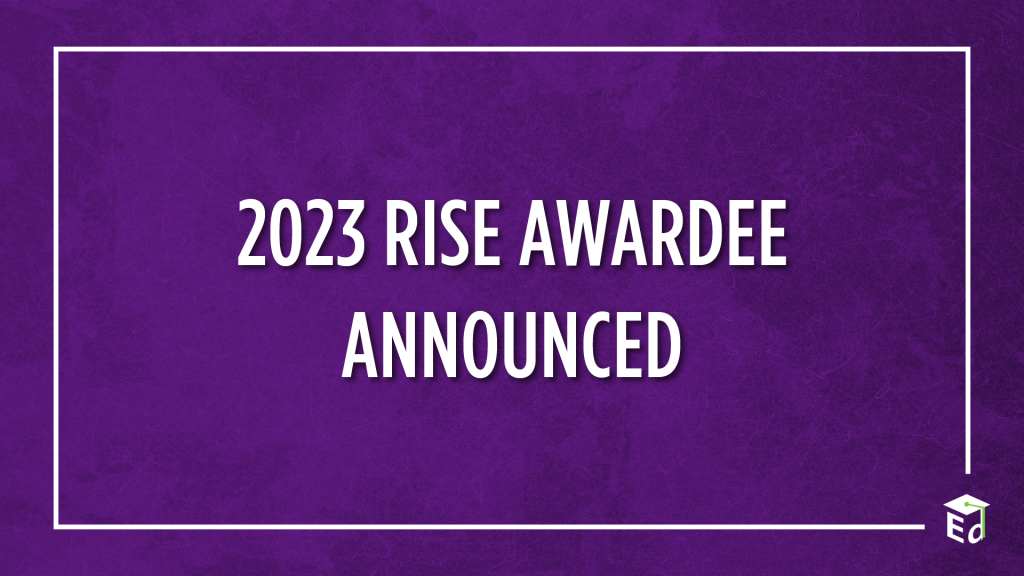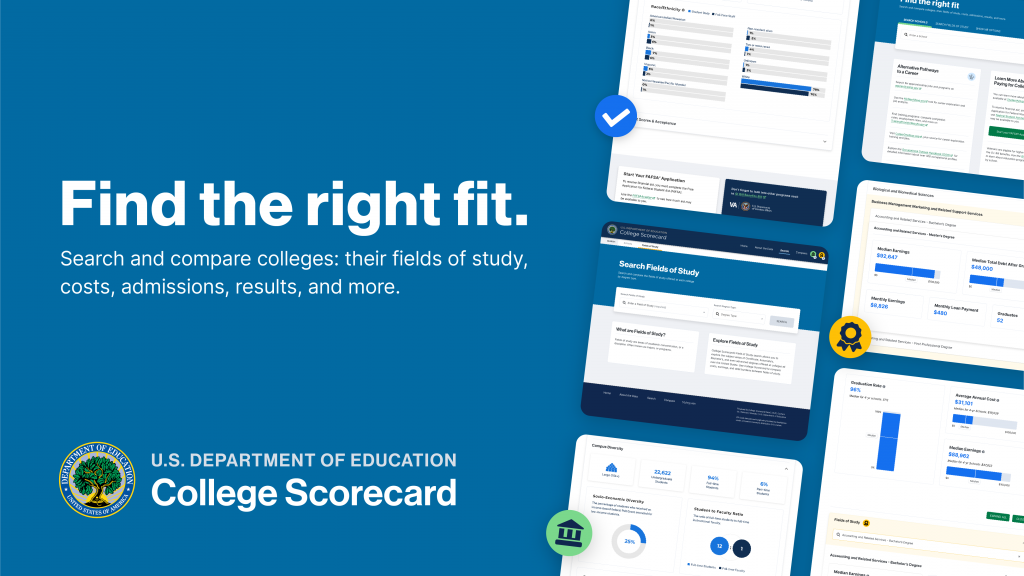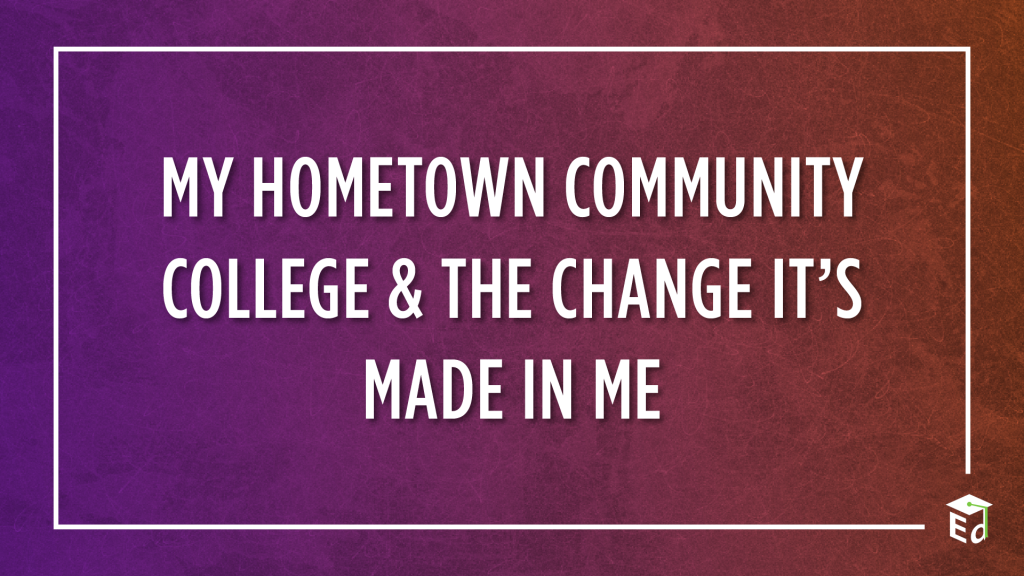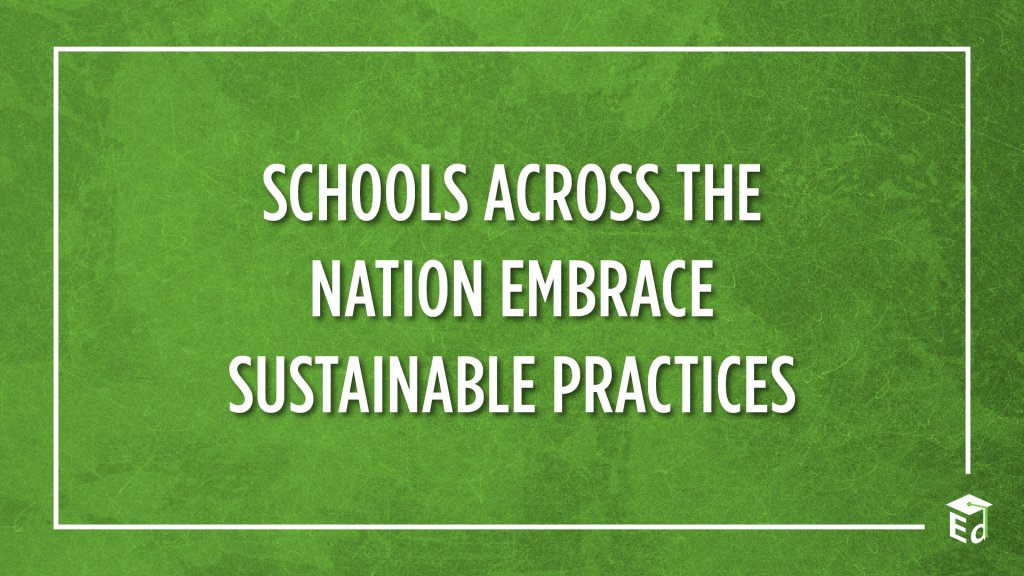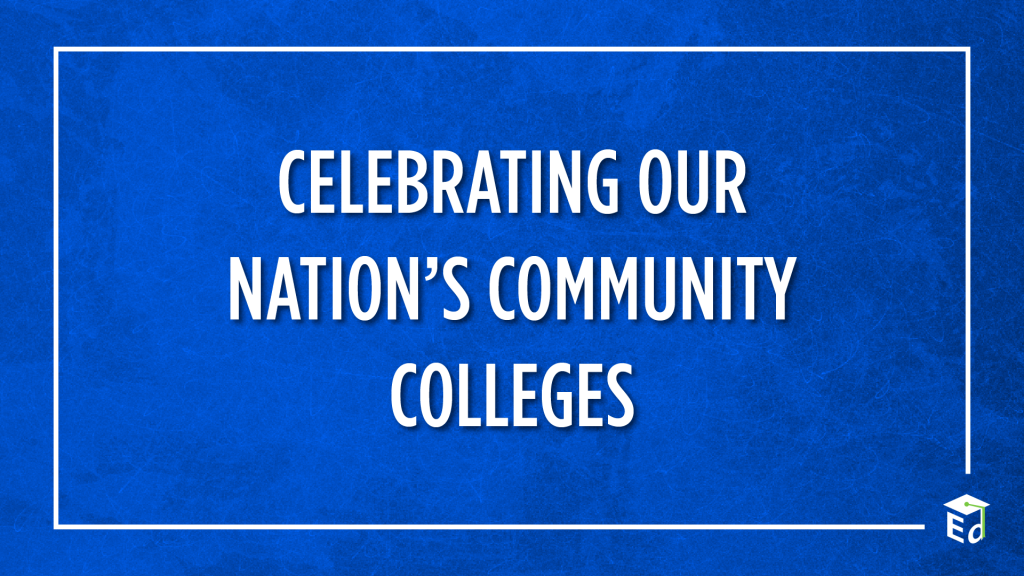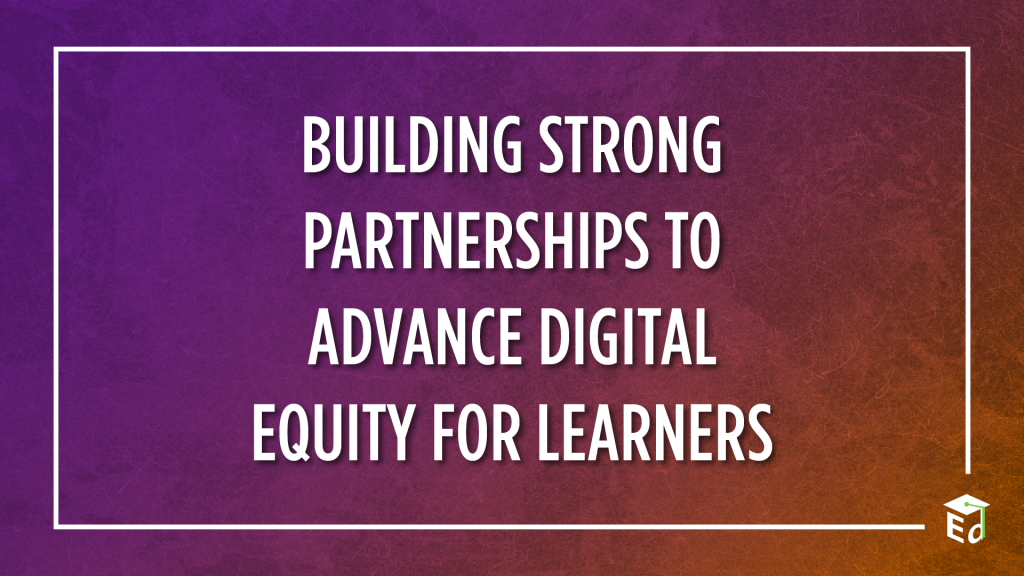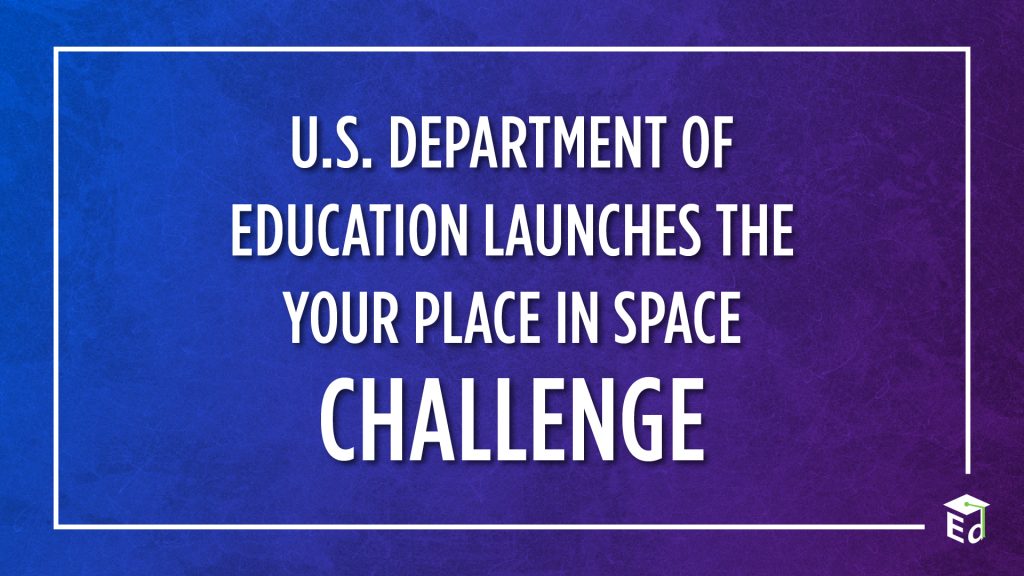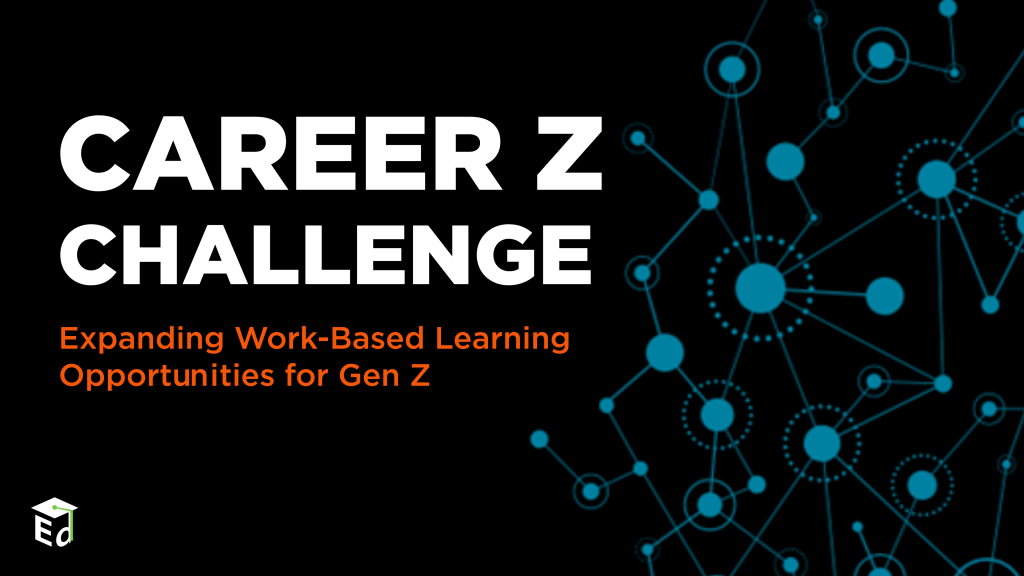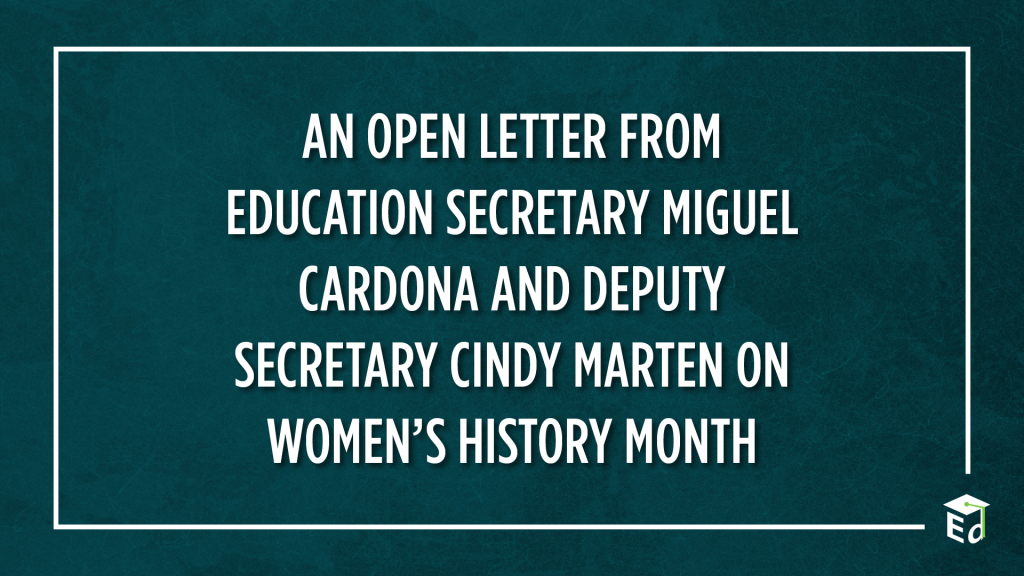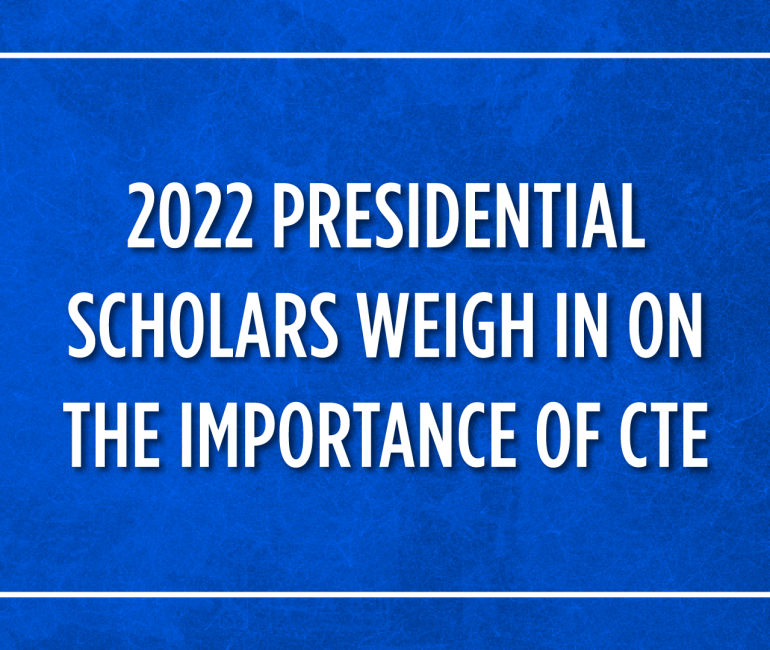
The U.S. Presidential Scholars Program was established in 1964, by executive order of the President, to recognize and honor our nation’s most distinguished graduating high school seniors. Max Aulwes, Alan Mo, and Sreeya Pittala are three of the 2022 U.S. Presidential Scholars Program recipients for excellence in Career and Technical Education (CTE). They took the time to check-in, respond to our questions, and share their experiences from high school CTE and beyond with us.
The Office of Career, Technical, and Adult Education (OCTAE) asked: Sreeya, what do you want others to know about CTE?
The career-oriented focus of CTE is very helpful because it teaches you many soft skills (employability skills) that you wouldn’t learn in a classroom setting. The level of engagement will prepare you for many opportunities down the road.
OCTAE asked: Alan, why do you think participating in CTE courses in high school is important?
CTE provides a wide range of activities to provide students with skills required in the industry and makes academic content accessible to students by providing it in a hands-on context. CTE education offers students opportunities to explore career options and acquire the technical skills and knowledge to work towards industry-recognized certifications and high-demand careers.
OCTAE asked: How did your CTE teachers help guide your interest in these pathways?
Max credits his CTE education teacher as one of the most important pieces to his high school career. She consistently pushed me out of my comfort zone when I needed it; and encouraged me every step of the journey.
Sreeya’s teacher encouraged her and her classmates to follow their passion. My teacher asked what excited us and urged us to explore that topic or profession further. My teacher always saw potential in me and never stopped encouraging me to take on new challenges and opportunities.
Max and Alan and Sreeya express it best when discussing the role of their CTE Teacher:
As a freshman in college taking entry level business courses, the knowledge I already have coming into the course work is fantastic. It’s all to the credit of the amazing dedication and hard work of my teachers. I regret not being more thankful for them during high school. -Max
I am thriving in college completely covered by scholarships studying a major I love. I only hope that I will be as good of a technical expert as Mr. Robert Fox. We keep in touch even as I leave high school and enter the university environment. – Alan
Ms. Mundell – Thank you for making the education of your students a priority. Your support has been one of the most remarkable aspects of my entire high school experience and I am forever grateful to you. – Sreeya
The Take-Away
These students thrived in their High School CTE programs and have carried the lessons they learned into their post-secondary experiences. None of this would have been possible without the excellent CTE educators who helped them along the way. These students are already leaders in their field and well-equipped to achieve their ambitious goals. We can’t wait to see what their future holds.
__________________
The U.S. Presidential Scholars Program recognizes distinguished graduating seniors every year. The program started in 1964 through an executive order. In 2015, the program began recognizing students who excel in the field of Career and Technical Education.
